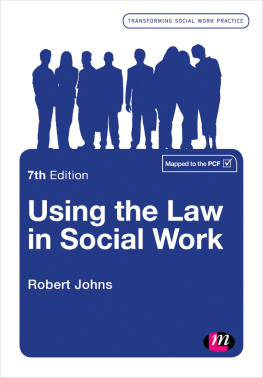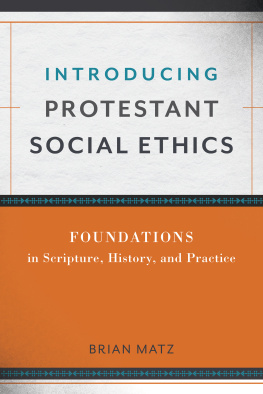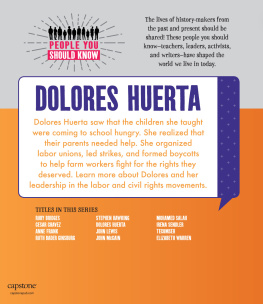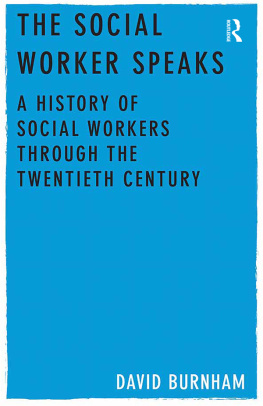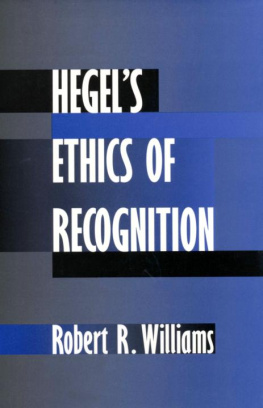SAGE was founded in 1965 by Sara Miller McCune to support the dissemination of usable knowledge by publishing innovative and high-quality research and teaching content. Today, we publish more than 850 journals, including those of more than 300 learned societies, more than 800 new books per year, and a growing range of library products including archives, data, case studies, reports, and video. SAGE remains majority-owned by our founder, and after Sara's lifetime will become owned by a charitable trust that secures our continued independence.
Los Angeles | London | New Delhi | Singapore | Washington DC
SAGE Publications Ltd
1 Oliver's Yard
55 City Road
London EC1Y 1SP
SAGE Publications Inc.
2455 Teller Road
Thousand Oaks, California 91320
SAGE Publications India Pvt Ltd
B 1/I 1 Mohan Cooperative Industrial Area
Mathura Road
New Delhi 110 044
SAGE Publications Asia-Pacific Pte Ltd
3 Church Street
#10-04 Samsung Hub
Singapore 049483
Robert Johns 2016
First published 2016
Apart from any fair dealing for the purposes of research or private study, or criticism or review, as permitted under the Copyright, Designs and Patents Act, 1988, this publication may be reproduced, stored or transmitted in any form, or by any means, only with the prior permission in writing of the publishers, or in the case of reprographic reproduction, in accordance with the terms of licences issued by the Copyright Licensing Agency. Enquiries concerning reproduction outside those terms should be sent to the publishers.
Library of Congress Control Number: 2015936967
British Library Cataloguing in Publication data
A catalogue record for this book is available from the British Library
ISBN 978-0-85702-909-6
ISBN 978-0-85702-910-2 (pbk)
Editor: Kate Wharton
Production editor: Katie Forsythe
Copyeditor: Rosemary Morlin
Proofreader: Clare Weaver
Indexer: Gary Kirby
Marketing manager: Camille Richmond
Cover design: Shaun Mercier
Typeset by: C&M Digitals (P) Ltd, Chennai, India
Printed and bound by CPI Group (UK) Ltd, Croydon, CR0 4YY
This book is dedicated to generations of social work students who demanded of law prescriptions it could not offer, and of ethics absolutes it could not deliver. Here's the reason why.
About the Author
Before moving into social work education, Robert Johns worked for a number of years in a range of social work roles, predominantly in the public sector. He has experience of all aspects of social work, ranging from mental health to youth justice and work with vulnerable adults, but with specialist experience in courtwork, representing the interests of children involved in care proceedings. Academically, his major abiding interest has been social work law but he has also taught social policy and social work values and ethics, hence this book. Currently, he teaches at the University of East London, where he has been Head of Social Work and programme leader for the qualifying MA offered in conjunction with the Tavistock and Portman NHS Foundation Trust. He is the author of Using the Law in Social Work, now in its sixth edition, Social Work, Social Policy and Older People and, most recently, Capacity and Autonomy.
Introduction: But I Want to be a Social Worker, Not a Philosopher!: The Challenge of Ethics and Law
This book addresses a challenge. It is a challenge all social work practitioners must tackle, and it is a particular challenge for students on social work qualifying and post-qualifying programmes, for whom the book is particularly intended. In a nutshell the challenge is this: how do social workers, practising within the UK legal context, act ethically and legally?
Behind this lies a more fundamental question: what do we understand by ethics and how does social work law relate to it? Social work practice in all countries incorporates a clear, unstinting commitment to social justice, but what is social justice? A preliminary understanding of ethics and ethical theory together with clarification of what is meant by social justice, is absolutely essential for anyone intending to practise social work.
From the social work practice perspective, a number of issues then arise. Given that the majority of social workers are employees or agents of state-sponsored agencies that must operate within clearly defined legal boundaries, what dilemmas arise for social work? What challenges do practitioners face when they try to reconcile their commitment to social justice with their legally circumscribed duties to service users? What tensions might arise between their loyalty and obligations to their chosen profession and the legal context within which they operate? How does the law itself address such issues? What decisions have the courts made when balancing conflicting ethical demands, for example the duty to protect people and the commitment to empowering people to make decisions for themselves? How has the legal system adjudicated on ethical issues related to social work? For some social workers there may also be issues of reconciling their own personal beliefs and values with those of a profession that requires compliance with a code of conduct that is, ultimately, enforced through legal requirements. Is this possible for social workers in everyday practice without resorting to legal-technical or bureaucratic responses? How can social workers move beyond asking what the law says, in the hope that this tells them what to do, towards the professional maturity that can use the law as a means of empowerment and can also challenge laws that are oppressive or fail to meet service users needs? Ultimately, to put it succinctly, how can social workers respond to laws that both constrain and empower?
While this book cannot answer all of those questions, it aims to address many of them. There is certainly a gap between the texts on ethics and law which this book bridges. Specifically, there is a substantial and growing literature on ethics in social work (for example: Banks, 2012; Beckett and Maynard, 2013; Gray and Webb, 2010; Parrott, 2015). Also there are a number of authoritative texts on social work law (for example: Brammer, 2015; Braye and Preston-Shoot, 2010; Brayne, Carr and Goosey, 2015; Johns, 2014b). All are valuable, yet some of us who, as social work practitioners and educators, teach social work law, have identified a tendency for social work students to treat ethics and law as two distinct animals. This, of course, is compounded in many social work programmes by having ethics and law as two distinct modules, which in many cases is an unavoidable necessity. Yet it can yield undesirable consequences. Students feel challenged, and sometimes deeply perturbed, by the ethical debates in which they are compelled to engage, and in some cases by the disjunction between their personal beliefs and professional values. In the case of social work law, students then demand more than it can give: they expect the law to tell them what to do in every circumstance. In some cases they hope the law can help them reconcile ethics and practice, and are often disappointed when told that the law simply sets the boundaries within which they as practitioners must decide the best course of action. After all, the Highway Code and the rules of the road lay down the principles of good driving and penalise poor driving, but they do not direct drivers as to what to do in every circumstance which they may encounter when actually driving along a road.







